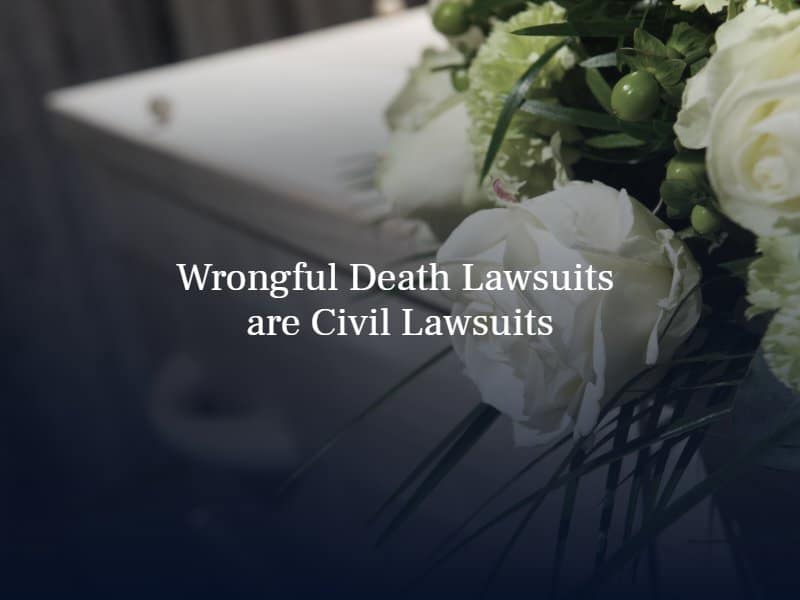Is Wrongful Death a Civil Suit?
A wrongful death claim is a type of lawsuit that can be brought in California when someone dies as a result of another person’s carelessness, recklessness, or intentional wrongdoing. It is a civil suit, not a criminal case against the defendant.
While a criminal conviction for manslaughter or murder punishes a defendant through sentencing, a civil suit holds the defendant financially responsible. A wrongful death lawsuit can offer financial compensation to surviving family members affected by the death.
Who Can File a Wrongful Death Claim?
In California, the law states that only certain parties have the legal right to file a wrongful death claim:
- A surviving spouse or domestic partner
- Surviving children
- Anyone entitled to the deceased person’s property by intestate succession, if there is no one within the decedent’s line of descent
If they can show they were dependent on the decedent financially, a putative spouse, child of a putative spouse, stepchildren and parents can also file a wrongful death claim in California.
Burden of Proof in a Wrongful Death Case
One of the main differences between a wrongful death case and a criminal suit is the burden of proof. This is the amount of proof the filing party must show to win the case against the defendant. The burden of proof in the civil justice system is lighter than in the criminal justice system. In a wrongful death case, the burden of proof is a preponderance of the evidence, while a homicide trial requires proof beyond a reasonable doubt.
A preponderance of the evidence is clear and convincing proof that the defendant’s careless, negligent or deliberate act more likely than not resulted in the victim’s death. The defendant must be found guilty of causing the death with at least 51% probability to be held civilly liable. In a criminal case, on the other hand, the plaintiff’s attorney must prove the defendant guilty of the crime beyond a reasonable doubt.
4 Elements of a Wrongful Death Case
Recovering financial compensation for a loved one’s wrongful death does not require proof that the defendant intended to kill the victim. Unlike a criminal case against the defendant, intent is not a required element in a wrongful death claim. The four elements of a wrongful death case are:
- The defendant must have owed the victim a duty of care. This is a legal obligation to act in a manner that is reasonable for the situation; how a reasonable and prudent person would act under the same circumstances.
- The legal doctrine of negligence describes someone’s carelessness, resulting in injury or harm to others. Negligence in a wrongful death claim can refer to any action or omission that breaches the defendant’s duty of care.
- The defendant’s negligence caused the victim’s death. The defendant’s breach of duty must have caused or significantly contributed to the victim’s fatal injury.
- Quantifiable damages suffered due to the death. Common damages sought are medical expenses, the decedent’s pain and suffering, funeral and burial costs, lost income, lost inheritance, lost companionship and love, and loss of consortium.
A defendant may be liable for a victim’s death whether or not he or she was deliberate or malicious in causing the fatal injury. It is not necessary to prove intent to kill. Instead, it is only necessary to establish the defendant’s careless, reckless or unintentional breach of the duty of care, as well as a connection between this and the victim’s death.
Contact a Los Angeles Wrongful Death Lawyer for Help
If you recently lost a loved one in an unexplained accident in Los Angeles, contact a wrongful death lawyer to discuss your legal rights. A lawyer can explain California’s related laws and help you gather evidence to meet the burden of proof. Hiring a wrongful death attorney can make seeking justice for your loved one easier during this difficult time.

